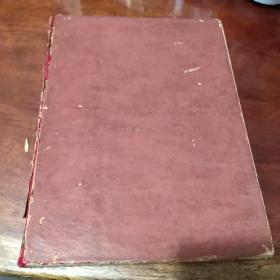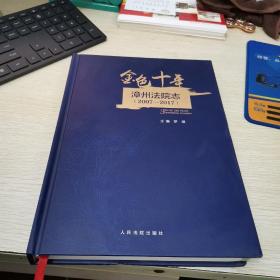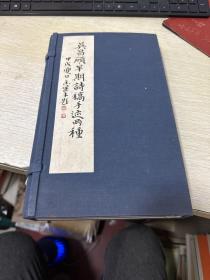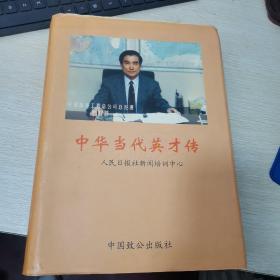
英语限定性小句复合体与知识建构:以大学教科书为例(英文版)
¥ 18 4.0折 ¥ 45 全新
仅1件
福建福州
认证卖家担保交易快速发货售后保障
作者邓庆环 著
出版社厦门大学出版社
出版时间2015-05
版次1
装帧平装
货号15
上书时间2025-01-09
- 店主推荐
- 最新上架
商品详情
- 品相描述:全新
图书标准信息
- 作者 邓庆环 著
- 出版社 厦门大学出版社
- 出版时间 2015-05
- 版次 1
- ISBN 9787561554357
- 定价 45.00元
- 装帧 平装
- 开本 16开
- 纸张 胶版纸
- 页数 245页
- 字数 288千字
- 正文语种 简体中文,英语
- 【内容简介】
- 《英语限定性小句复合体与知识建构:以大学教科书为例(英文版)》旨在探讨英语限定性小句复合体在不同学科的教科书中建构学科知识时所发挥的作用。《英语限定性小句复合体与知识建构:以大学教科书为例(英文版)》选取了物理学、经济学和心理学三个学科的教科书作为研究对象,讨论了英语限定性小句复合体的不同研究视角,《英语限定性小句复合体与知识建构:以大学教科书为例(英文版)》的研究框架,以及英语限定性小句复合体在不同学科教科书中的特征,采用的是定性和定量相结合的分析方法。
- 【作者简介】
- 邓庆环,1966年10月生,博士,赣南师范学院外国语学院副教授,研究生导师。已发表论文20余篇,合编教材、教学参考书2部,完成省级课题1项。
- 【目录】
-
Chapter 1 Introduction
1.1 Background of the Study
1.1.1 Functions of Logical Elements in Knowledge Construction
1.1.2 Complex Sentences and Knowledge Construction
1.2 Rationale of the Study
1.3 Research Objectives and Questions
1.4 Data Collection and Methodology
1.5 Organization of the Book
Chapter 2 Literature Review
2.1 Review of Studies of FCCs
2.1.1 Traditional Approaches to FCCs
2.1.2 Cognitive Linguistics
2.1.3 Systemic Functional Linguistics
2.1.4 Comment on These Approaches
2.2 Review of Studies of Conjunctions
2.2.1 Traditional Grammar
2.2.2 Systemic Functional Linguistics
2.2.3 Comment on These Approaches
2.3 Studies of TBs
2.3.1 Academic Status of TBs
2.3.2 A Survey of Studies of TBs
2.4 Summary
Chapter 3 Theoretical Framework
3.1 Key Notions
3.1.1 Metafunctions
3.1.2 Choice and Probabilistic
3.1.3 Register
3.1.4 Gcnre
3.1.5 Academic Language Socialization
3.1.6 Constructive Perspective on Knowledge
3.1.7 Knowledge Construction in TBs
3.1.8 Explanation and Verbal Reasoning
3.1.9 Brief Comment on These Notions
3.2 Analytic Framework
3.2.1 Expansive FCCS
3.2.2 Projective FCCs
3.2.3 Conjunctions
3.2.4 Projecting Verbs
3.2.5 Projectors
3.3 Reasons for Choosing SFL
3.4 Summary
Chapter 4 Expansive FCCs and Knowledge Construction(1): Extensive FCCs and Elaborative FCCs
4.1 Elaborative and Extensive FCCs in Knowledge Construction
4.2 Details of Extensive FCCs in the Sub.Corpora
4.3 Extensive FCCs and Knowledge Construction
4.3.1 Paratactic Extensive FCCs and Their Functions
4.3.2 Hypotactic Extensive FCCs and Their Functions
4.4 Elaborative FCCs and Knowledge Construction
4.4.1 Elaborative FCCs in TBS
4.5 Comparison of Extensive FCCs and Elaborative FCCs
4.6 Summary
Chapter 5 Expansive FCCs and Knowledge Construction(2): Enhancement FCCs
5.1 Enhancement FCCs and Conjunctions
5.2 Overall Features of Enhancement FCCS in TBs
5.3 Causal Relation and Knowledge Construction
5.3.1 Frequencies ofCausal Rel~ion in the Corpus
5.3.2 Causal Rel~ion and Knowledge Construction
5.3.3 Organizations ofCause and Effect
5.4 Conditional Relation and Knowledge Construction
5.4.1 Studies of Conditionals
5.4.2 Quantitative Results ofConditionals and Their Functions
5.5 Concessive Relation and Knowledge Construction
5.6 Temporal Relation and Knowledge Construction
5.7 Manner Realtion and Knowledge Construction
5.8 Comparison of Disciplinary Features of Enhancement FCCs
5.9 Summary
Chapter 6 Projective FCCs and Knowledge Construction
6.1 Projective FCCS in TBs
6.2 Features 0f Proiectors
6.2.1 Classification of Projectors
6.2.2 Overall Features ofProjectors in TBs
6.2.3 Projectors and Knowledge Construction
6.2.4 Comment on Projectors in TBS
6.3 Projecting Verbs and Knowledge Construction
6.3.1 Studies ofProjecting Verbs
6.3.2 Classification of Projecting Verbs
6.3.3 Projecting Verbs and Knowledge Construction
6.3.4 Modality and Tense in Projective FCCs and Their Function
6.4 Interaction Between Projectors and Projecting Verbs
6.5 Summary
Chapter 7 Conclusion
7.1 Quantitative Results and Discussion
7.2 Significance of the Current Study
7.3 Limitations and Suggestions
Appendix Data Samples
Phycorp
Extract 1
Extract 2
Extract 3
Psycorp
Extract 1
Extract 2
Extract 3
Ecocorp
Extract 1
Extract 2
Extract 3
References
致谢
点击展开
点击收起
— 没有更多了 —

















以下为对购买帮助不大的评价